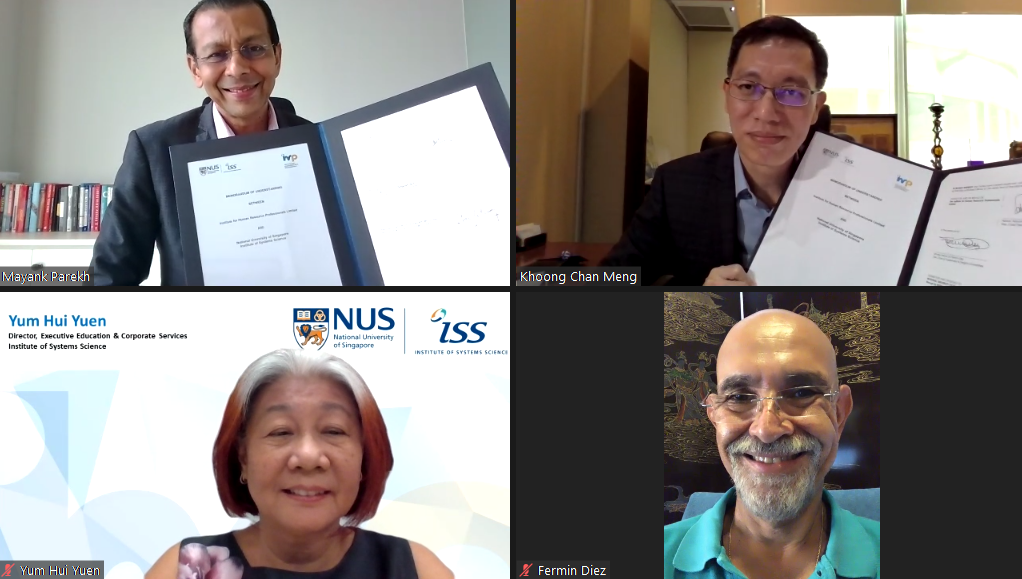SINGAPORE: A series of industry-specific human resources (HR) playbooks is being developed to guide HR professionals to address and solve challenges specific to their sectors, Senior Minister of State for Manpower Zaqy Mohamad announced on Wednesday (Sep 30).
The Manpower Ministry (MOM) and the Institute for Human Resource Professionals (IHRP) are working together with sector agencies and HR experts to curate best practices, tools and practical use cases for these playbooks, said Mr Zaqy.
The playbooks will first be introduced for the finance and food services, before being expanded into other sectors, he said at the HR Tech Festival Asia 2020.
This is in line with the goal of strengthening the HR capabilities of organisations to support business and workforce transformation, one of the two key thrusts of recommendations laid out by the HR Industry Transformation Advisory Panel.
Formed in 2018, the panel aims to equip the HR industry to play an integral role in business transformation as well as chart the next phase of development for the industry.
Mr Zaqy noted that the Government is integrating HR capability building components into the various enterprise support schemes, giving the example of Enterprise Singapore’s Scale-Up SG programme, which helps high-growth local companies to scale rapidly.
EMERGING SKILLS
The panel’s recommendations also called for HR professionals to be equipped with emerging skills.
In his speech, Mr Zaqy cited a study by advisory firm Willis Towers Watson which found that almost 90 per cent of all HR roles would be impacted by technology.
“Based on IHRP’s estimate of their certified community, 53 per cent of certified HR professionals in Singapore will be affected,” he said.
"The increased availability of technology-enabled solutions and data analytics will elevate the value-add of many HR functions, creating new opportunities."
HR professionals must be ready to embrace new skills and opportunities for better career development, he added.
He noted that IHRP had signed an agreement with the National University of Singapore’s (NUS) Institute of Systems Science to develop a HR Digital Competencies Roadmap.

(Clockwise from left to right: Signatories - Mr Mayank Parekh, CEO of IHRP; Mr Khoong Chan Meng, CEO of NUS-ISS, Witnesses - Dr Fermin Diez, Deputy CEO & Group Director, Human Capital and Organisation Development, National Council of Social Service; Mrs Yum Hui Yuen, Director, Executive Education & Corporate Services during the Virtual MoU Signing Ceremony)
“Under this partnership, IHRP and NUS will develop training courses for enterprises to acquire the skills necessary to embark on digital transformation. The flagship programme, the Professional Diploma in Digital Human Capital Leadership, will enable HR professionals to lead and execute business transformation projects,” he said.
Mr Zaqy reassured those in roles at higher risk of displacement by technology that there would be opportunities to upskill themselves to develop new skills and competencies.
“Through upskilling and supporting business and workforce transformation, we will continue to elevate the HR professionals into strategic business partners and leaders,” said Mr Zaqy, adding this would also result in better jobs in HR.
A STRONGER HR SECTOR
“The transformation work ahead of us demands organisations to harness the best talent available to lead the change,” said Mr Zaqy.
“This requires robust and merit-based talent hiring processes, as well as measures that ensure workplace diversity and inclusiveness, so that organisations can recruit from a wide and diverse pool of talent."
Workforce analytics can use data to generate “deep insights” into organisation and job requirements as well as the suitability of prospective candidates, he added.
“At the same time, it makes business sense for our companies to invest in the local talent pipeline, the closest source of talent,” he said, noting that major travel disruptions caused by the COVID-19 crisis have highlighted the importance of a “skilled local core for greater workforce resilience and sustainability”.
Mr Zaqy said that there were currently about 47,000 HR professionals in Singapore, about 90 per cent of whom are local across different wage levels.
Of these, 92 per cent are in PMET (professionals, managers, executives and technicians) roles, up from 85 per cent five years ago
“Over the same period, median wages for HR professionals have also grown by about 10 per cent. Through HR transformation, we aim to support HR professionals to take on roles with higher value-add and wages,” he said.
“A strong HR sector will put our businesses and workforce in good stead to navigate their transformation journeys in the post-COVID world.”
The article first appeared in ChannelNewsAsia.com here